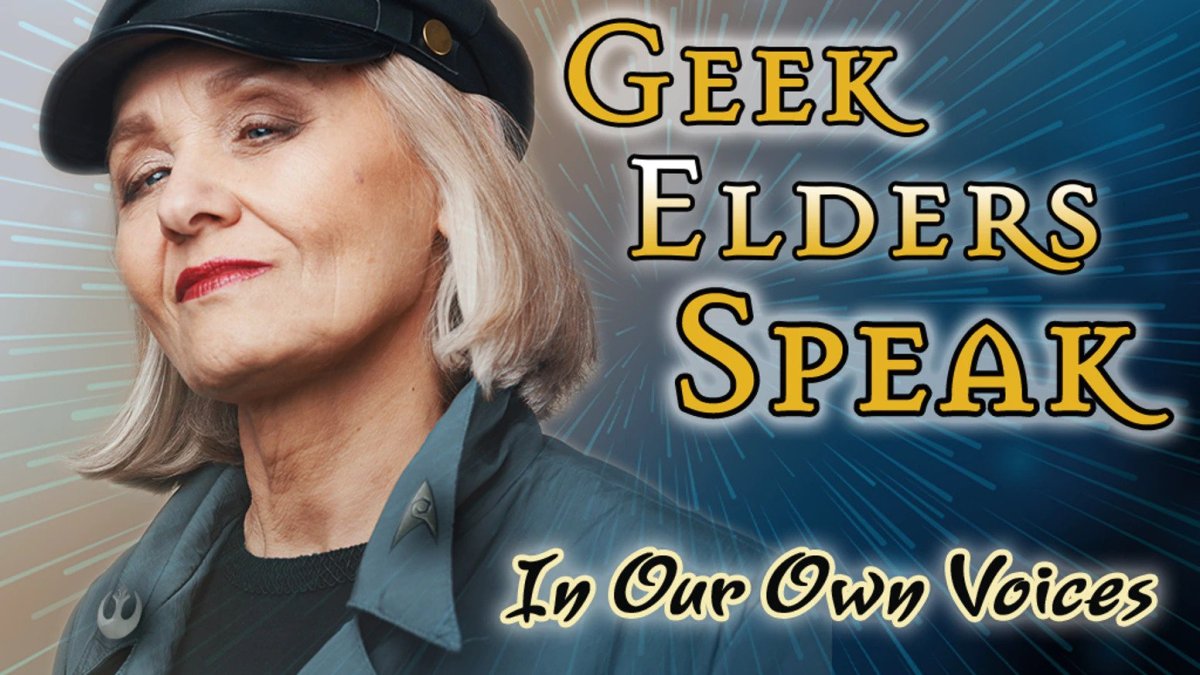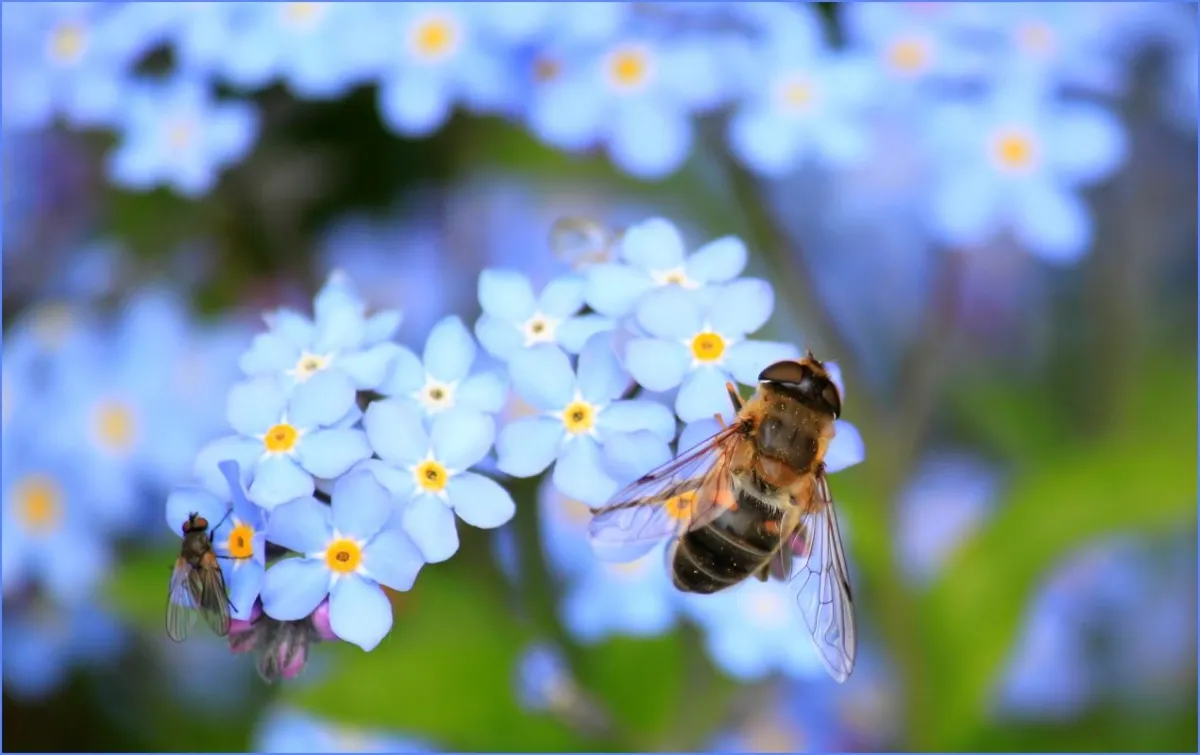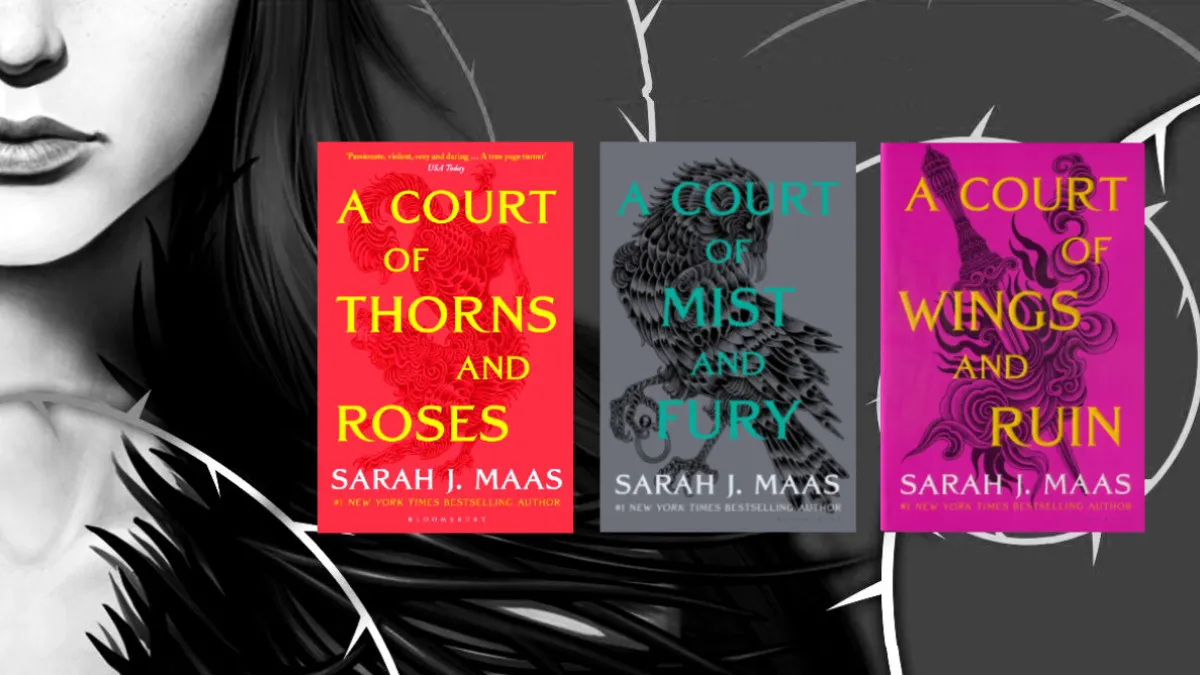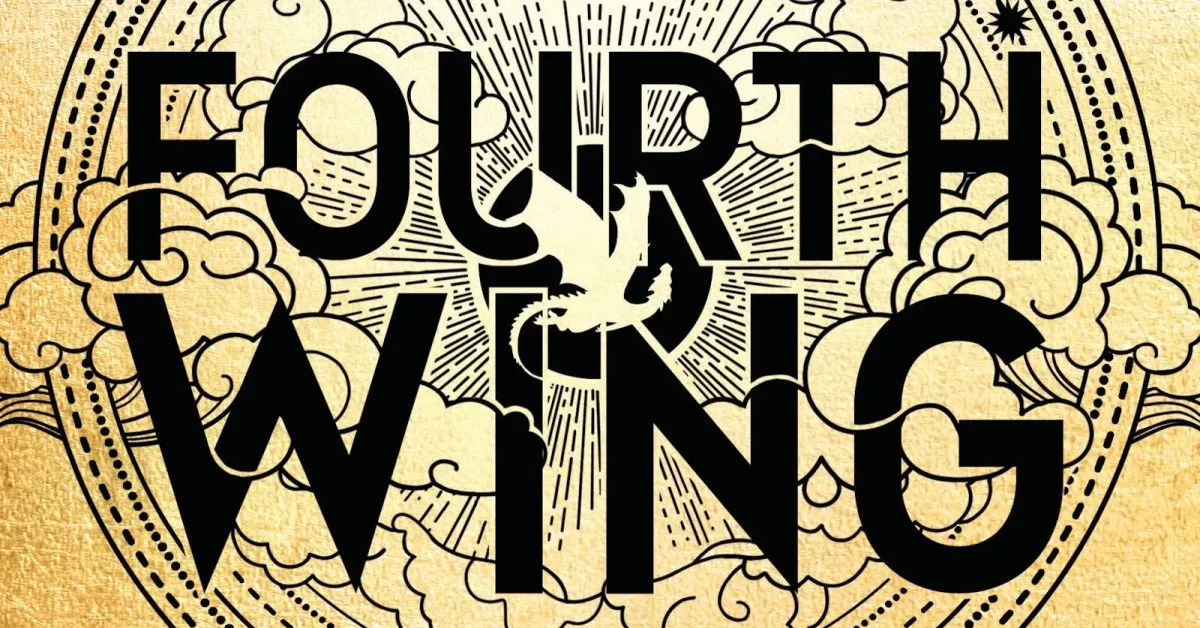There’s no better time than Women’s History Month to talk about the contributions that women have made in fandom.
In Geek Elders Speak: In Our Own Voices, women from all walks of life talk candidly about their personal experiences coming into their own and forging influential communities in the first iterations of fandom culture. As we’ve seen fandom evolve now, there is no doubt to the ways that this participation has lended to the efforts to promote authentic inclusivity and diversity in fandom.
Maggie Nowakowska & Jenni Hennig are the editors of the Geek Elders Speak anthology, and both women have spoken to the importance of oral history and continuing conversation in understanding not only the history of women in fandom, but the futures that may come from their participation.
In this conversation between the two, Maggie and Jenni discuss just how deeply fandom meant to them as women in a world that was dominated by men who ignored and belittled them for sharing the same space in their love for fandom.
Enjoy!
Maggie Nowakowska: If I say I’m a fan these days, what people think that means can be very different than who I think I am as a fan. Fandom was a lot more “homemade” fifty years ago, more obscure, not what “normal” people did by a long-shot. It most certainly wasn’t “cool.”
Jenni Hennig: I tend to joke that the “mundanes” have taken over the asylum. SFF/media fandom has become big business, much more mainstream. Fandom B.I. (Before Internet) was my community. We tended to jump in with both feet and stay for years. And no, I don’t mean that we all got along and it was nothing but holding hands and kumbaya. But we found a place where we could be the creative weirdos that we were.
I’m more in the “pro” space now, I’m not finding a lot of things lately to be fannish about, and am more involved/passionate with the universes roiling in my head. But I think the explosion of fandom also has something to do with me not feeling as at home there as I used to. It’s such a weird feeling, to look around and see that SF/media fandom has become pop culture cool. Not altogether comfortable, right?
Maggie: Oh, there are so many fandoms these days! We had Star Trek, where media and fanzine fandom were conceived and delivered; then Star Wars, which confirmed the reality that Star Trek began and that media fandom was a woman’s world. After those big fandoms came the deluge of “fringe” fandoms that are considered standard issue today.
One bright spot: the mundane world no longer finds the idea of women wanting to read erotica, or even write it themselves, shocking, unbelievable. Modern fandom has our old-day fandom to thank for that freedom. Forty years ago, people had to pass “those” stories around through the mail, or look long and hard for a copy shop that would print explicit illustrations, and then still sell “those” zines under the table at conventions.
Jenni: Yeah, there were a lot of people foaming at the mouth about erotica, particularly the slash. It was startling at first, to be sure. We hadn’t been allowed to explore those things, and it was ultimately so liberating to shuck off those particular chains. I was reminded of so many things as I was editing Geek Elders Speak, but that stood out: the subversive act that was erotica and slash, and the number of women talking about not only courting the characters’ sexuality, but their own.
Another surprise to me was that our little corner of SFF/media fandom was 99.5% women. All my Star Trek/SF friends were geeky boys. We built models, costumed, went to cons, played a new game called D&D (in which I ultimately became the backstory writer and artist for the characters). It wasn’t until … I can’t remember if it was Star Trek Lives! or seeing a fanzine—a media zine, not an apa or the like … well, that was the discovery that other people—other women—wrote stories like I did.
Maggie: Oh, many women cite Star Trek Lives!*, as their gateway into fandom because it not only referred to fanzines, it provided addresses for them.
It turned out that a lot of young women who grew up in the first decades of television wrote stories based on favorite programs or about characters they especially liked. They thought that they were the only ones doing that sort of thing.
*By Jacqueline Lichtenberg (who is in Geek Elders Speak), Sondra Marshak, & Joan Winston
Jenni: The communities outside our fannish bolthole refused to take us seriously. Those “mundanes” were our neighbours, our teachers … and, with many of us, our families. Who just didn’t get it.
Maggie: Here’s a true story about a fan at work back when fans sure were weird to most people: I wasn’t shy about writing fan stories during downtime or working on illustrations for fanfic in zines over lunch. I leaned heavily on encouraging people in the office to think I was a harmless eccentric, which overall worked pretty well.
Then, one day before a computer class—this is the mid-80s—I’m chatting with a popular woman when she suddenly says, “You know, don’t you, that they all envy you?”.
Well, I didn’t know that about our co-workers, so I asked what she meant. With a sigh of exasperation, she said, “Well, you’re always busy! You always have something to do! You go to those weekend meetings [SF conventions], and you’re always busy with that stuff you do. You have an outside life! They don’t do anything but work, go out for drinks afterward, and then go home.” I didn’t know what to say, but then the rest of the crew showed up and I went back to being simply an amusing oddity.
(These days, they’d probably want to read the story and feel knowledgeable enough to critique the art.)
Jenni: We HAD a life! I think the worst of it came from those who should have been on our side. The SF “pro”-centered writing community really wanted nothing to do with us. A big part of this was because we were women, and claiming our voices in ways often considered “inappropriate.” (There are several interesting takes on that in the Geek Elders Speak book, so I won’t go on about it here.) But it was a problem. At conventions, if we were put on panels with “pro” writers, it was almost a given that we would be treated like scum. (Mostly from men, true, but there were plenty of women happy to eat their own.)
Maggie: Which was worse: getting dissed or simply being ignored, as if you weren’t even there?
Jenni: Being ignored is kind of what we’ve had all along. But if someone is publicly insulting … well, you get to the point that you’re done, you know? There was one writer (who probably shouldn’t remain nameless) who basically tried to tear me and my fellow fanzine editor a new one. I got angry and returned the favor. I also got the audience behind me, because they clocked pretty early on that the guy was being a real dick. He still is, too.
But it’s true, many of us who were trying to break into pro learned to keep fannish activities hidden. I personally lost a book sale because an editor—who, by the way, had herself come out of fandom—knew of me and decided the book being considered was “derivative.” (It wasn’t, not in the way she meant, anyway, because nothing comes out of thin air and all writing is by its nature derivative—but the accusation was enough to put the kibosh to the project.)
Maggie: We both know published writers who, today, still will not admit publicly that they once wrote fanfiction.
Jenni: And that still seems normal!—to me, at least. Re-entering the publishing game nearly ten years ago, it was quite a culture shock to realize that many writers were openly admitting to their fanac. Some have even “filed off the serial numbers” and had that luckiest of breaks: a runaway bestseller!
Unfortunately, these same writers who’ve grown up openly admitting their own fanac are often a bit tone-deaf as to why some elders find the admittance difficult. Many younger women just don’t comprehend that total lack of admittance and acceptance.
One of our contributors decided to “come out” during the editing process of Geek Elders Speak; I did and still do applaud her bravery. Because we were penalized in So. Many. Ways. There was no mainstream presence for us. The studios and writers looked at us and saw nothing but a bunch of uppity women and flakes. (Of course, now they seem to see only a source of free advertising and a merchandising maw …)
We were the outsiders, period. You’ve said it: we weren’t the cool kids, then, and aren’t now, either. But that’s okay. We’re used to it, aren’t we? ;)
Maggie: Yeah, sure … but sometimes I feel like I’ve been pushed back into the old closet, like the whole world has bulldozed our quaint village of weird girls to build a World of Tomorrow Fandom—that still forgets about weird girls and still insists that fangirls fight for their rightful place with the fanboys.
In so many ways, the new fandom, the larger fandom, has turned out not to be so different than the fandom we knew, only bigger. Wait long enough and there will be another post on AO3’s writers group that asks if other people don’t tell anyone that they write fanfic. Or someone will post on Facebook or Twitter about the latest encounter with a fanboy who doesn’t accept a fangirl’s ideas, her fanac, or the basic idea that she’s any kind of a fan at all.
It saddens me that somehow, between the mid-80s and the advent of social media, the fact that girls and women are whole-hearted fans, the same as boys and men, was lost. SPOCKANALIA, anyone? The first Trek fanzine? Created by women? In 1967?
We’ve been around since the beginning! How did we end up with fangirls feeling like they had to explain themselves to the boys? I thought we solved that problem when the SF bad boys realized that women had been reading modern science fiction since the days when my mother read Amazing Magazine as a teen in the 1930s.
Jenni: And comics, which started out with totally different ideas than they’re being presented with today. Some of those ideas were of their time—and thusly pretty wrong-headed—but some ideas were ahead of their time.
I totally agree with you on the quaint village being bulldozed. It does feel like that some days. And you know, a lot of amazing and revolutionary fiction was being written by women in the 70s-80s. I have the books on my shelves—I was one of them!—yet today, it’s like they never existed.
But they did.
Maybe we’ve been on the regression side of that pendulum for the past 40 years. Kind of a kickback/payback for the paradigm shift that happened in the 60s/70s. Just when things begin to normalize, there goes the pendulum again, starting its swing.
Maggie: When did the toy department start being divided into blue and pink areas, with the action figures always in the blue area? It wasn’t like that as late as in the 80s. Maybe that swing—which I agree with—really picked up momentum in the 90s when home computers came out and so many parents bought them for … their sons. I remember women creating online archives of fanfiction scanned from print fanzines; I remember women posting in TheForce.net forums in 1996 – I was one of them.
Jenni: I’d been GAFIATE’d (Getting Away From It All) by then … but I remember some later online fandoms, which were already starting to show the Drift … starting to forget what was before.
The good thing is, many of these kids have been/are being raised to be more compassionate, more inclusive, more used to the status quo being a rainbow spectrum rather than black and white. Impatient and angry and fed up with the B.S. … yes! As Mr. Nancy says, “Anger gets shit done.”
However. I do think a lot of younger women don’t stop to consider how recent it was that we, as women, simply weren’t allowed many things that are a given today. Again, yes!—it means progress, even if it seems to move at a snail’s pace. But it also can be a huge problem. It’s easy to forget, to take things for granted.
Maggie: “Don’t it always seem to go that you don’t know what you’ve got till it’s gone?”
Jenni: It does. People forget how far we’ve come as women, let alone as fannish women. Like my grandmother … for the early part of her life, she wasn’t allowed to vote. When I was young, classes like typing, sewing, and Home Ec were a requirement for girls (even this not-at-all-girly girl who’d rather have been taking wood shop and mucking a barn!).
I could ride anything with hair, but I wasn’t allowed to ride bucking horses in a rodeo, because: Girl. I wasn’t allowed to wear trousers to school … and our skirts better have touched the floor when the teacher made us kneel to check it. Then came the end of the 60s/early 70s … mini skirts, no girdles, crop tops—freedom!! But we still weren’t allowed to have credit cards in our own name, or sign our own financial agreements. As to being paid or regarded commensurate to men? Forget it!
Maggie: Thinking of a fan who produced her fanzines in her car because her family didn’t approve.
Jenni: These women need to hear this kind of stuff. I mean, it’s only human, I think, to take for granted what we have. I love my hot water and my indoor plumbing … but lurking in the back of my mind, when I stop to consider, is how my grandmother’s house didn’t have those things for much of when I was growing up. She taught me to cook in a wood stove, and when we wanted a chicken for the stewpot, we had to go catch it. There are still a lot of people today who don’t have these luxuries … they ARE luxuries, not a given.
Maggie: Thinking of a fan whose husband wanted her committed because of her fan activities.
Jenni: And those kinds of things. We do need to keep on, progress, and demand our equalities. But we also can’t forget where we came from, that personal agency and power can be very slippery to hold onto. We have to consider our privileges more often, I think, and remember that they ARE privileges. Not everyone has been (or is) so fortunate enough to take such things for granted.
Maggie: Thinking about how much of what women have done as fans that has already been forgotten.
Jenni: Which of course is why we thought about taking Jamala’s idea for a Geek Elders Speak panel at a GeekGirlCon and expanding it into a book. That panel shone a bright light on a nearly forgotten past that got talked about all convention long. We do not want to be forgotten like so much about women’s interests has been lost; we want the fans who have come after us to be able to laugh heartily as those who think fandom could exist without us.
Nothing is ever forgotten … but it can slip from active memory and have to wait a long time to be recalled. That shouldn’t happen to women in fannish history; new fans, young fans, they aren’t orphans. They’ve got foremothers at their back.
(featured image: Forest Path Books)
Want more stories like this? Become a subscriber and support the site!
—The Mary Sue has a strict comment policy that forbids, but is not limited to, personal insults toward anyone, hate speech, and trolling.—








